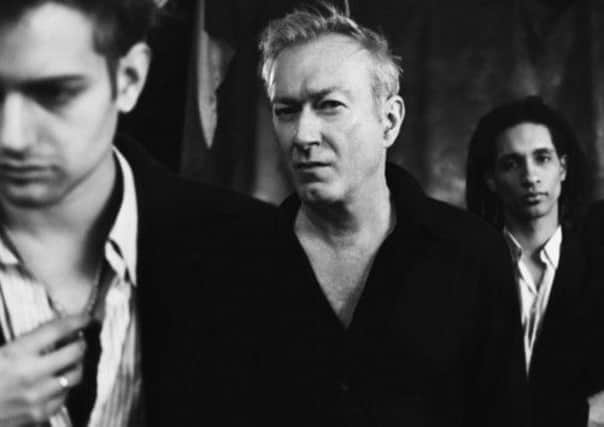The leader of the gang going it alone into the future


BY his own admission, it has been “a little while” since Andy Gill last brought one of post-punk’s most radical and revered bands back to the Yorkshire city where they began.
“It should be interesting,” the guitarist and now sole remaining original member of Gang of Four says of their impending return to Leeds for the experimental music festival Recon. They’ll be doing so without Jon King, Gill’s long-time song-writing foil with whom he formed Gang of Four in 1977, while they were students at the University of Leeds.
Advertisement
Hide AdAdvertisement
Hide AdKing or no King, interest in a band who’ve influenced everyone from Red Hot Chili Peppers to Franz Ferdinand remains keen.
Much of their appeal still lies in songs that have serious – and sometimes radically left-wing – ideas at their heart.
He does admit to missing King, as they’ve been friends “for a very long time” since their school days.
“To be honest, there’s pros and cons,” Gill considers. “You miss a certain type of sounding board, the contributions that would be made, but it means I can seek out other sounding boards and develop things in perhaps ways I might not have done before. There are negatives and some big positives is the way I see it.” It was with King that Gill had made a fateful trip to New York in 1976 where they would discover the nascent American punk rock scene at the fabled venue CBGB’s. Gill denies that the bands they witnessed ultimately influenced the famously choppy guitar sound that Gang of Four would later make, but, he says: “I think it was pivotal in the sense that we kind of walked into a new set of friends in New York. People we were hanging out with were either in bands or were girlfriends of people in bands or friends of people in bands or were writing about bands. It was an exciting point in time.
Advertisement
Hide AdAdvertisement
Hide Ad“You’d go into CBGB’s and there would be John Cale and Joey Ramone standing at the bar and various characters you knew about. We’d be having beers with them and conversations. It was a little bit of demystification. I don’t think it has any effect on the sound. The influences on Gang of Four were hugely from dub reggae and a good shot of Dr Feelgood, but not particularly any of the New York bands.”
Nor, it seems, did they feel much affinity for the British scene. “I loved the Sex Pistols records and The Damned and especially The Clash,” says Gill. “But I think in a sense I was already thinking a bit in a post-punk way. I think seeing the Feelgoods in the mid-70s had been my punk rock revelation – to see the efficient, short, machine-like way of going about it and the tightness. Also the way the band approached the audience – there was no shoe-gazing or messing about. It was all very direct.”
What punk rock did achieve was “an opening up of both who could do it and what could be its subject matter, what it could be about”.
Leeds, the city where Gill studied fine art three and a half decades ago, was, as he recalls, a very different place to how it is now.
Advertisement
Hide AdAdvertisement
Hide Ad“Whenever I’ve come up to Leeds in the last 10 to 15 years the sun always seems to be shining and it looks distinctly nicer,” he says.
“But in the photographs that we took in Leeds in the 70s it looks like photographs from the Somme. Being there without any money and damp, unheated places – it was not until I moved into a modern place that I suddenly realised I did not have to have flu for six months of the year, I did not have to have a permanent cold.
“But I can hardly blame Leeds for that – I was an impoverished student. There was so much about Leeds that was stimulating and exciting.”
Remarkably, they have achieved nods from a new generation of bands such as Franz Ferdinand, Young Knives and the Futureheads attests to their continuing influence.
Advertisement
Hide AdAdvertisement
Hide Ad“I think it’s great,” Gill says of the fact that Gang of Four now attracts a younger audience.
“If it had been static, if it had just been people my age and older, people who were around back then, it would be much less interesting. It’s fascinating when we go and play in Beijing and Shanghai, like we do, and there are all these people in their 20s from the other side of the world who are into it.”
Radical entertainment that still inspires musicians
GANG of Four originally included Dave Allen on bass and Hugo Burnham on drums. The band was named after a political faction in the Chinese Communist Party in the 60s and 70s and was famed for its left-wing critique of society. Their debut album Entertainment, released in 1979, was ranked in Rolling Stone magazine’s 500 Greatest Albums of All Time. Further records included Solid Gold, Songs of the Free and Hard. The band split in 1983 but the original line-up reformed in 2004 to tour. September 28, Brudenell Social Club, Queens Road, Leeds. 6pm, £23.50. http://reconfest.co.uk